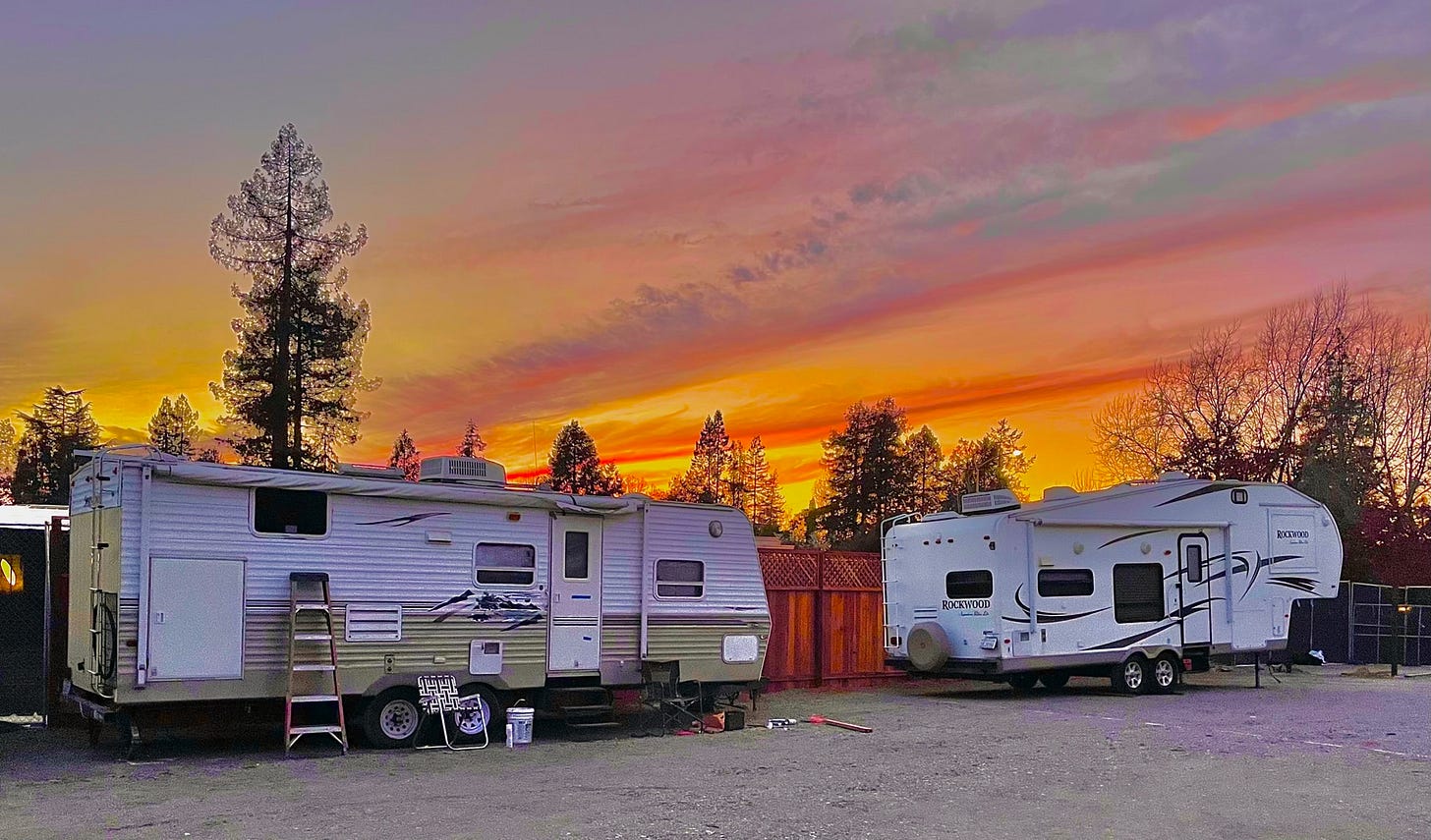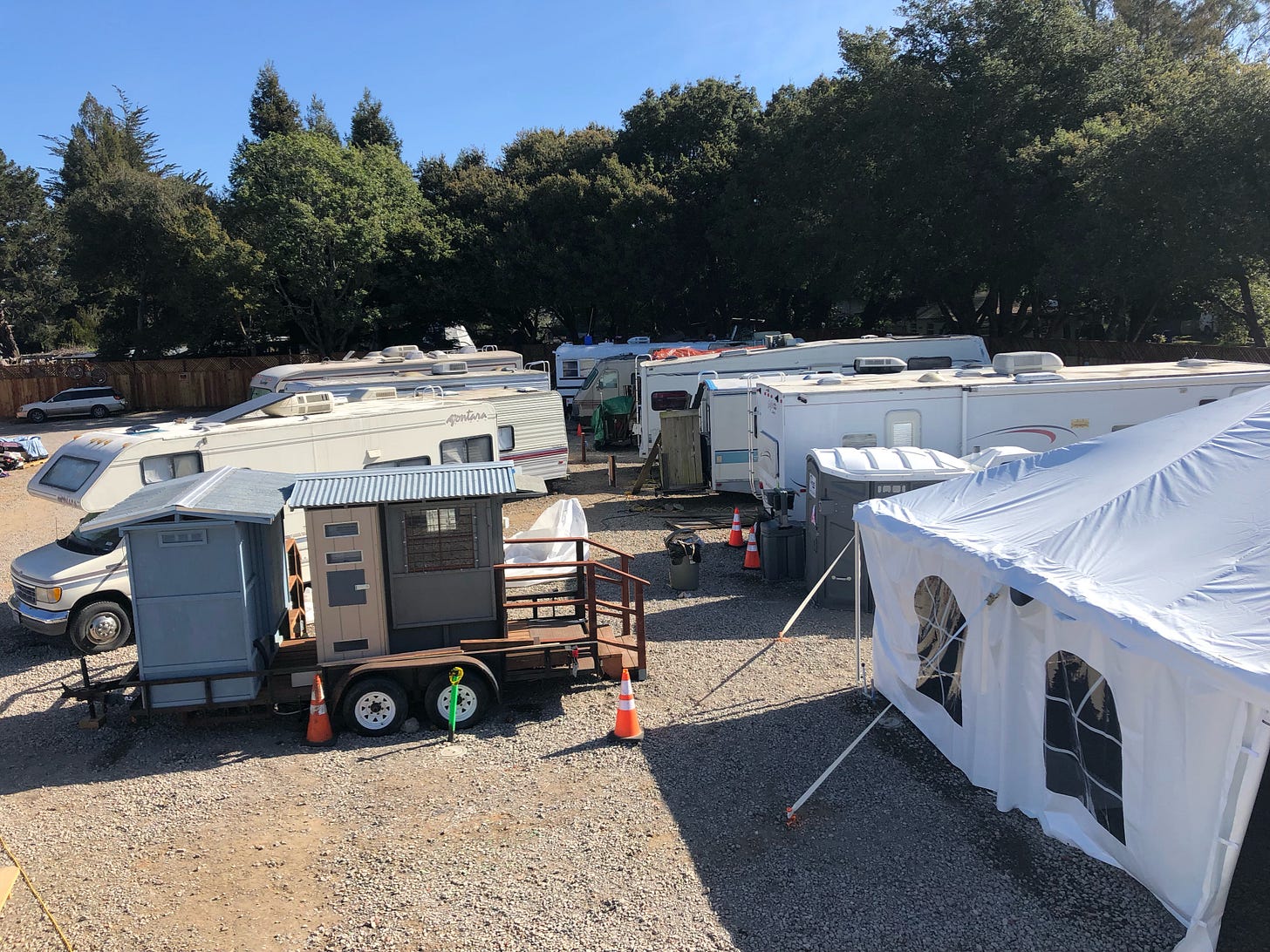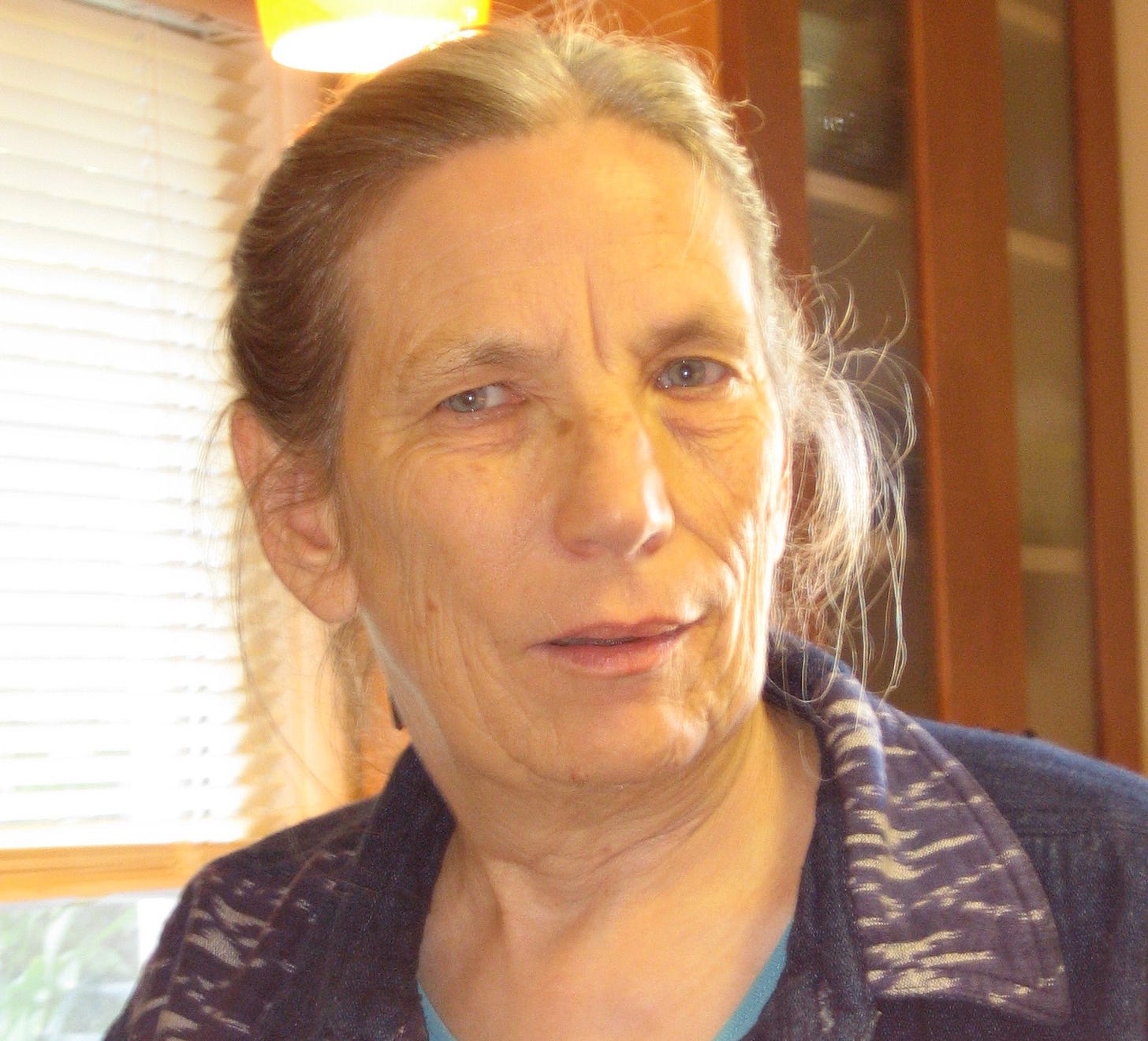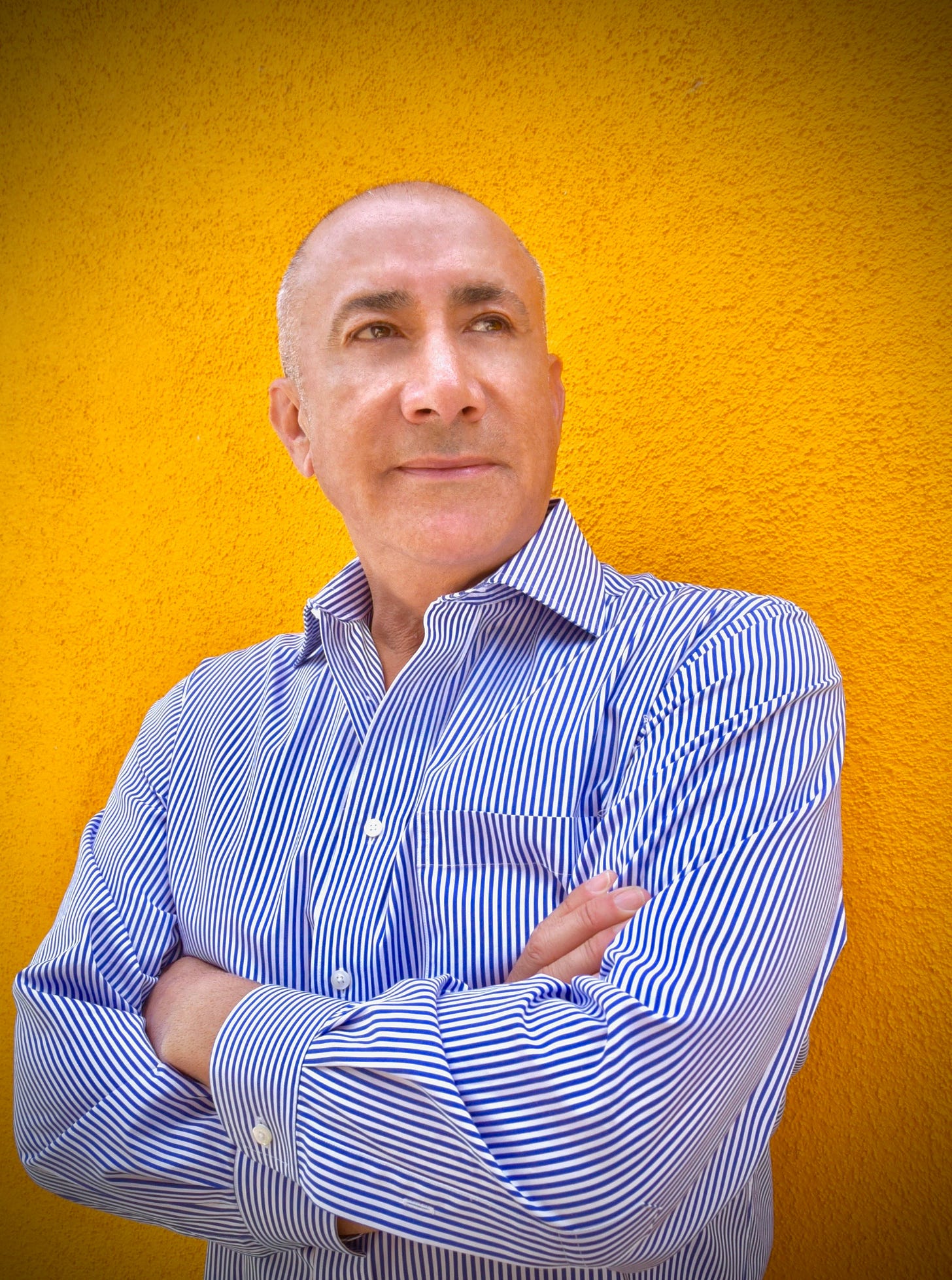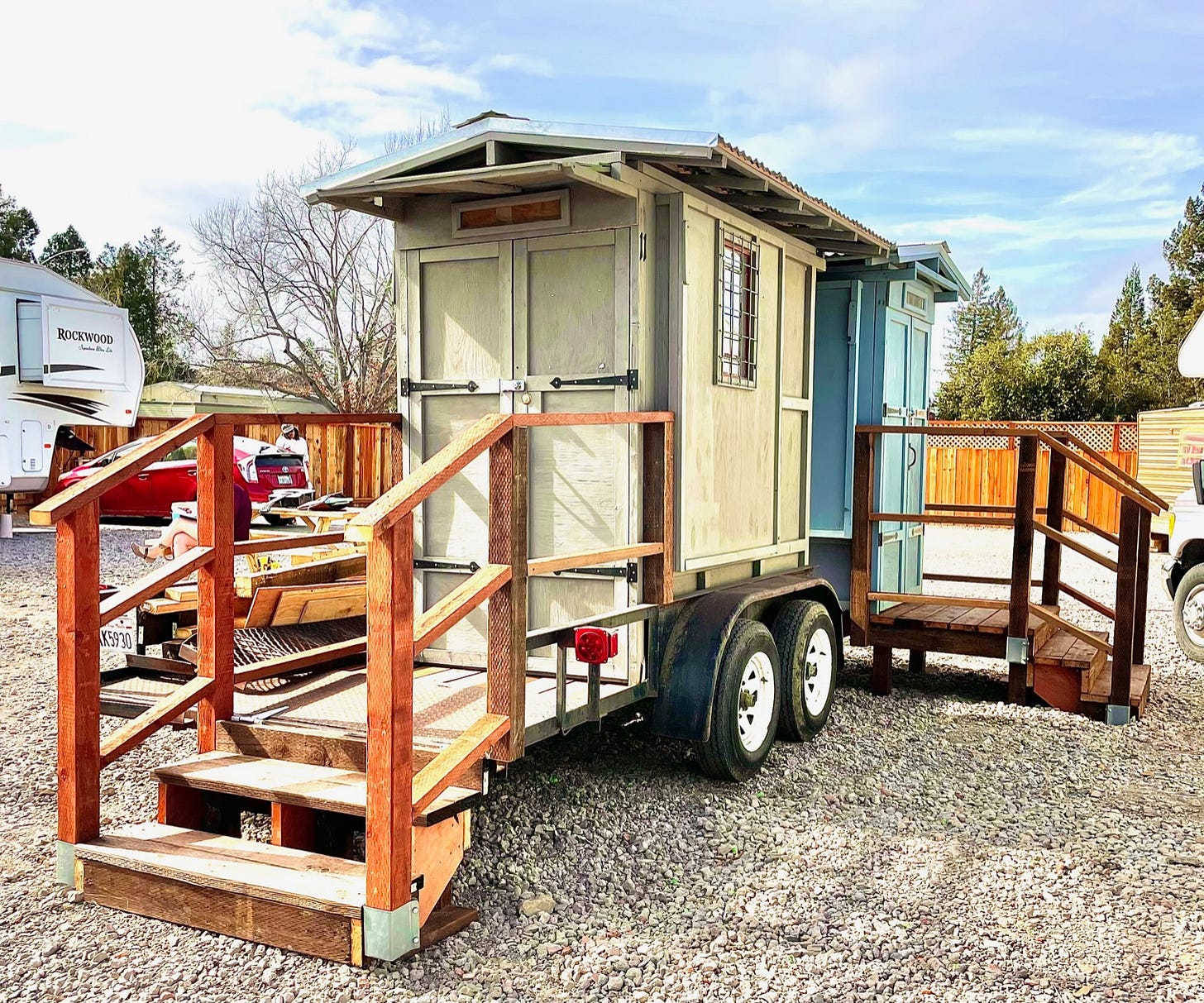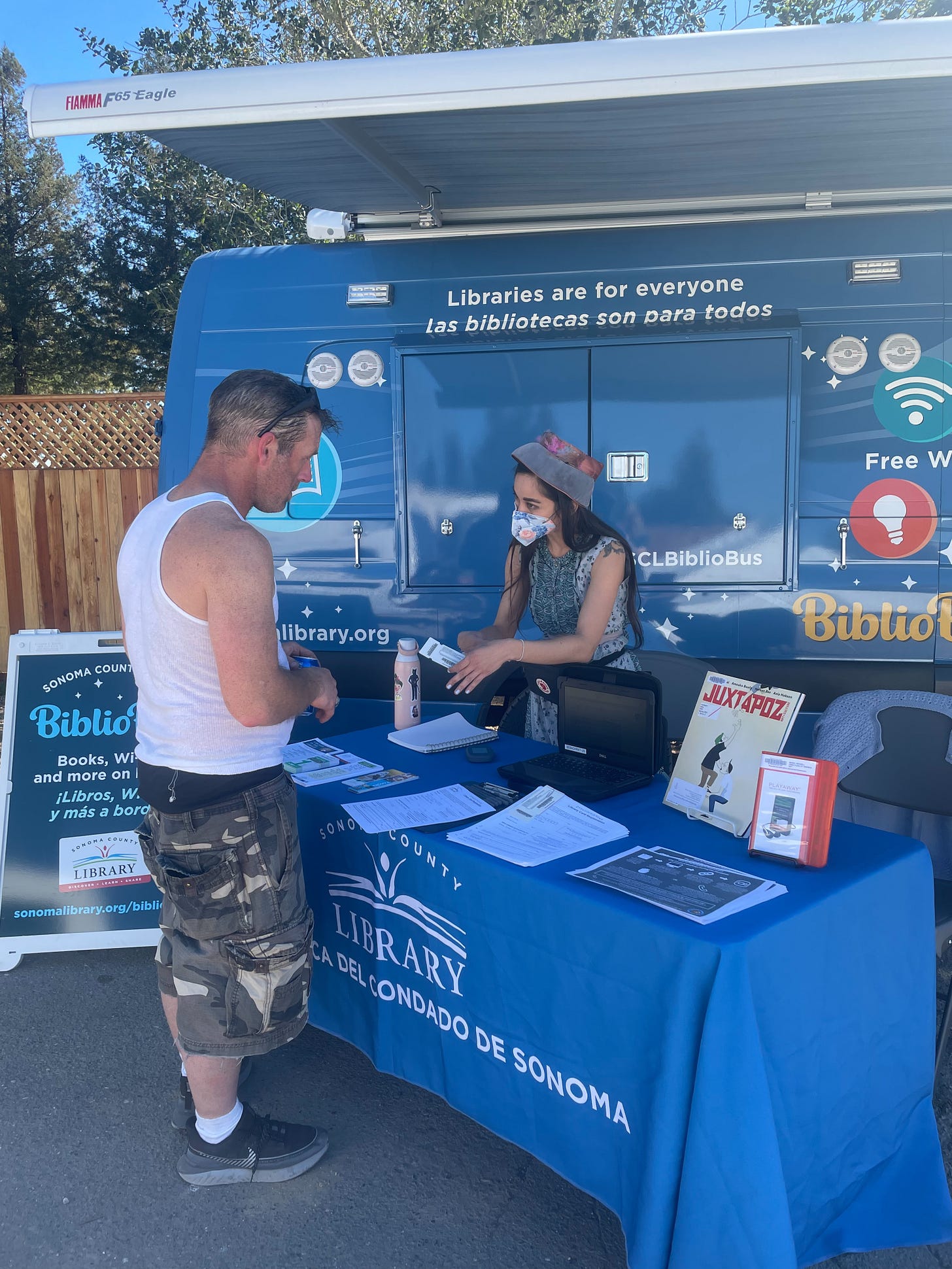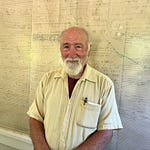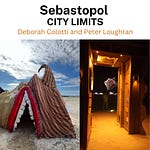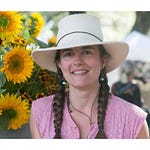Horizon Shine was put forth as a name by a homeless person on Morris Street and everyone in the planning session liked it. It’s now the name of the village community on North Gravenstein Avenue built by Sonoma Applied Village Services (SAVS) and opened in February 2022. About 20 RVs and 30 individuals were relocated from Morris Street to Horizon Shine Village where they have access to showers, a daily hot meal, and case workers who can help them figure out how to get what they need. The effort, which came about through a partnership between SAVS and the Sebastopol City Council, was funded by donations as well as grants from County Board of Supervisors and the State of California.
In this episode, we talk with Adrienne Lauby, the President of Sonoma Applied Village Service and Hector Gutierrez who is the Village Project Manager.
Transcript
Adrienne: The bottom line of everything I do is the feeling that housing is a human right. And that's in the international declaration of rights, but it's also just reality.
We live in the rich country. Sonoma County is a rich county. It's ridiculous that we have 2,000 people with nowhere to sleep at night. I think it's a human right. And I hope other people will understand that and just be as appalled as me. That's all.
Dale: I'm joined today by Adrienne Lauby and Hector Gutierrez from Sonoma Applied Village Services. SAVS is the acronym and they manage the Horizon Shine on Gravenstein Avenue.
And we're gonna learn more about them and what managing that means. Actually we'll start with you, Adrienne. Can you tell us a bit about yourself and your background and how you got into this?
Adrienne: Sure. So I'm right now, the board president of SAVS and I've been doing homeless work for about eight years.
I got into this through a long history of trying to do change in the world, starting with feminism in the seventies and going through a disability movement. I wanted to do local work and because of Occupy Santa Rosa, I realized that there was an overlap between disability and homelessness. And so I started trying like a lot of us -- do something, help. Oh my gosh, this shouldn't happen like it is.
Why do we have 2000 people on the street in Santa Rosa, not in Santa Rosa in Sonoma County, So, gathered up my courage to go meet homeless people and started developing a team. We worked with this group called homeless action for and then eventually we realized that all of our good ideas were not gonna be put into play unless we ourselves did them.
So we started SAVS in 2018 as a nonprofit, and that allowed us to get some government funding, which is what we've done and eventually to open up Horizon Shine here in Sebastopol.
Dale: Great. Thank you. Hector, how about you?
Hector: Actually I'm new to that homeless cause only because I just been here in the Santa Rosa area about a year and a half ago. I moved up here from Los Angeles area. I work mostly city government for last 30 years and retired from that particular job. And then I moved up here with my wife. She's originally from this area. And how I got involved with SAVS, I had applied for a position, a project manager, and mostly that would be construction after discussing with Adrienne what the project was and what was the goal? I find it very interesting. I think it's a great idea. I think it's a humane type of thing that I wanted to be involved with. I wanted to help the community.
I wanted to help the cause of what this is program was trying to achieve. So with that being said I took the job so that I can be part of this particular project and the rest is history. I've been there for, going almost in a year. We completed the village in Sebastopol and we're moving on to other projects in the future. It's so new, but I'm really enjoying the work that I'm doing.
Dale: What do we know about the homeless situation in Sonoma County from your perspective? What have you learned that you could share with us?
Adrienne: I think the biggest thing I've learned is to keep the generalities outside of the world. People have lots of generalities about homeless people, starting from the most stigmatizing, like they're all mentally ill, they're all losers, they're all drunks and addicts to the kindest ones. They're all wonderful, giving, loving people who just lost a job. And the truth is there are 3000 homeless people in Sonoma County and they are very particular people with particular histories, just like anyone else.
What we do know is that there's an increase of elderly people in their seventies and even eighties. And these are people who have generally had a work life and retired and then had some level of tragedy or unusual circumstances hit them. But I think because of the economy, rich getting richer, the poor getting poor, it's just more of those folks. Which is they're all heartbreaking. We also see a lot and I'm saying the things that I think might surprise people. So we see a lot, I said about disability. And people would say yes, mentally ill. We closed the mental institution. So of course there's a lot of mentally ill people, but actually there's also a lot of physically ill people.
We meet people, an amazing number of people to me who have cancer and are going through cancer treatments, people in wheelchairs with mobility problems, people with breathing problems. We also find, I would call them economic refugees who had been priced out of the housing market because of maybe they just didn't expect it to be so hard to rent an apartment, but also people who've lost jobs and people who lost housing because of the Tubbs fires. So climate change and economics definitely affected us.
2000 of those people live outside. A thousand of the 3000 are in some sort of facility: shelters, group homes, whatever. But that 2000 really literally have nowhere to stay every night. About a third of them, and this will probably surprise people, do have a vehicle they live in, which makes sense because if you were to lose your home, the first place you'd go is whatever vehicle you have.
And also people get given like an RV. Oh, I have this one. I'm not using it anymore. Or my brother-in-law has a crapped out one in their backyard. You can have it, just take it out of the backyard. So we have what the police call "caravans" of homeless vehicles. This has worked out well for SAVS because it's easy. Like they already have a kitchen, they already have a bathroom. They already have a place to live. And it's a matter of just giving them a place that's safe and legal because the biggest problem is two things. One is keeping your RV registered and smogged and all those things that cost a lot and which you don't really need cuz you're living in them. You're not traveling in them. And then the police, because you're only allowed to be on the street at certain number of days, depending on where it is. And so they get harassed by the cops like, "oh, you have to leave. You have to leave. Yeah. I saw you over on there last week, but you're here this week. You gotta go somewhere else."
And so it's constant stress. Where are you gonna be? And of course, this is all magnified when people are living in tents, same thing happens. They get neighbors (who) call and then, "okay, you gotta leave. You gotta leave." We just kept saying, and they keep saying. Where are we gonna go? Where are we gonna go? So the mission of SAVS is to give them a place to go. And we have our one village in Sebastopol. We're hoping to do a new one that will be Latino focused because they are overrepresented in the homeless population. We'll have more to say about that later in the year.
Dale: Is the RV home site kind of a model that you're gonna build on?
Adrienne: I mean our goal we call it tiny villages and we say, whatever is a village. It could be a village of tents. It could be a village of little, one mini homes that are just a bedroom with no, any kind of facility. And then common rooms to help or or RVs and trailers.
Dale: So how did you get involved in Sebastopol then?
Adrienne: So we came because of Morris Street, essentially. We got to know people who were concerned about Sebastopol. And we have outreach workers who go around the county and just give people little food or whatever.
And pretty soon we saw here's a community. And the good thing about a community like this is that you can find them, because everyone else is getting moved around. So we started coming to Morris Street more often. We did a project where we tried to help people get their --we had a fund and we tried to help 'em get registered. Legalized. So they weren't in trouble. And that means we met them. And then we met some of the council people who were also interested in trying to do it, and we put a proposal in and it went nowhere. And then at some point, there was this magic moment where the council said, we really wanna do something here. And we said, we really wanna do something here. And there was some money. And that was, I think the critical piece that the county system threw into it. and that's how we started to start Horizon Shine.
Dale: So they identified some property. And then Hector, were you involved in having to construct that facility?
Hector: Yes, that was my primary role was to construct the property once or the village that we call. Once we got all the permits and all the approvals from city council and everyone involved. I was yes responsible for building the infrastructure for it, managing all that.
Dale: How long did it take to get permitted and everything?
Hector: I think because of all the work that Adrienne and the rest of the board has been doing with city council, they were aware of all this this particular project and everything that we have discussed, how it was gonna take place. I We actually showed them the design and what we had in mind. So permitting was very quickly, they were ready to help us. So when
Adrienne: I gotta interrupt here, cuz this is the kind of legal issue, we were sued by some neighbors, and they said we didn't go through the permitting process correctly. The judge threw them out basically, but we didn't actually go through permitting because we were permitted automatically because of some regulations and rules that the planning department did.
So again, the city of Sebastopol really worked with us.
Dale: Hector, can you talk about what did you have to, you obviously had to put up fencing, but what else?
Hector: Yeah, so the fencing was put up actually by the owner of the property and I just managed the construction of it.
And then after that, we had to bring in power, work with PG&E on that. Also we had to have that particular property does not have potable water service from the city. So we had to plumb the actual site, but then we are using tanks with the pump. And so it's all internal. So I had to have the plumbers come in and build the infrastructure for all the plumbing, water faucets. We have a sink, we have portable showers. So we have connection to the portable showers as well. And then we also had to put up cameras for security and we also have wifi for the office and wifi for the residents-- two separate systems so they can connect to the wifi.
I just recently built a dog run that it was a donation by a member of the community, but I was involved overseeing that particular project. So anything that has to do with actually any kind of construction per se, that's what I'm involved with.
Dale: Were there any, did you create any shared areas as such as like communal eating?
Hector: We have a community tent, so it's like a common area where people can come and that's where we have our meetings. That's where we have our like tables and chairs for people to eat once the food gets delivered in the evenings. And it's a place to gather, community gathering.
We have porta potties, obviously, and trash pickup service, where we have trash cans throughout the property. Fire department have come through and, done inspection for us as far as we have to have fire roads for emergencies within the property. So that's all been taken care of and that's all that had to be planned to build it like that.
Dale: Adrienne, could you talk a bit about moving people in. You had to convince people, I think initially to go but were they willing and what did they think when they moved there..
Adrienne: There was one other thing I wanted to add in here about setting it up. We are not on city property. People often think we are, but we are on a private property, which is owned by another nonprofit St. Vincent DePaul of Sonoma County.
Dale: They bought what used to be Natural gas or propane (distributor).
Adrienne: They brought a property that wasn't at all being used and now it is. They've been great partners.
Getting people interested, it was actually a little uphill. The concept that they might be behind a fence, the concept that there might be a rule, that there might be some rules about visitors.
We said that the owners of the vehicles could come and that if they wanted to live with someone else, which many of them did either in a couple or as friends, that was okay. But they couldn't just have people staying in their unit. That was really distressing to some people because they were taking friends off the street and saying, yeah, you could sleep here tonight.
Some of them many nights. Almost all nights. These kinds of rules and then. These are people who are not used to having rules and they've seen rules really be used against them. So yeah, there was a fair amount of like fear, I would say.
And we just kept meeting with them. Like we kept meeting with the neighbors and saying, this is what it's gonna be. And here's the advantages. And when it came right down to it, the fact that they would not be under police control every day and having to deal with the police all the time. And that they weren't, I didn't have to come up with a thousand dollars to get their back registration done.
These were convincing. So in the end, I think everybody moved that was there. And then there, there was just the physical part of moving them and I gotta give a big bow to Hector because the police had actually started to really enforce. And so we thought we had a couple weeks to move everyone in.
We could do it step by step. It turned out to be a few days really. And Hector had to set up exactly where each one would go and figure out, who was friends with whom, but also how the physical --cuz these trailers are different sizes. So how they all fit on the property and then which ones needed to be towed and who could tow them.
It was a lot at the same time we were doing our intake, which is a big physical document that everyone had to sign and give a lot of information and get their ID photographed. So there was, let's just say it was "fun fun in the sun sun sun.".
Dale: Actually someone knowing them and what they're doing is one hand a kind thing, but it's a threatening thing to them as well.
Adrienne: And it made a huge difference. The Sebastopol advocates that had originally started working with us and in that we were there a lot. We knew 'em as people and we knew they had relationships. We had some idea what relationships they had with each other. All of that. I think made this whole thing actually work.
We had a community and we moved it into a better spot to have a community.
Dale: So Hector, you have this, I think difficult role, trying to balance care and safety and all these other things, right?
Hector: Yes. Originally, we had an idea of what we wanted things to be. And I come from a background of project management of people and projects, large projects. That particular project, it was not overwhelming. I just had an idea of what we needed to do. There's all kinds of different things that come up every day, as far as how to make things happen because they changed and things like that.
But overall it was it was just something that we had to, take our time and think it through before we start doing things because Adrienne mentioned, we unfortunately had to, at the very beginning, we had to get some people up the street in a hurry, like within a couple days if not less.
So we have to figure out how to get 'em in the village and place them in a place where we still have major construction taking place. But to answer your question, I think everything everything was planned out well, so everything just we had good vendors and it had a lot of good help from some other residents within the village that would help me do some of the daily, everyday activities that we needed to do there to get things ready. So yeah, I think it went pretty well.
I was there on site every day, mainly that was because of the construction. Most of the construction's already completed. So it's now being managed by an actual property manager, site manager there.
Dale: And you also have case workers that visit and get to know and help the people that live at the village navigate some of their issues.
Adrienne: That's correct. I think I wanna talk about our model, which is to say these people are adults. They've had lives. They are not criminals. They are not children. We know they need to have some say in how they live and what their circumstances are. So we started out right away to have a village council and we're in moving into our second phase of trying to have a village council.
It wasn't greatly successful, but we've always felt it's not just us. It's a team, but we do have hired staff. We have our village managers, Hector was saying, but we also have case workers and their job is to take people one by one and say, what do you need? What will help you move on in your life?
And the goal of course, is to get people into permanent housing that they are stable enough to stay in. Yeah, we have three. Three case managers now plus a, an onsite manager and a village manager. And we also hire our own security during the day. We have 24/ 7 security and a commercial security company that does it at night.
Dale: If the expectation is that you would get some of these people into permanent housing, would you fill their spots with others to that?
Adrienne: Oh yeah. Okay. Absolutely.
Dale: And there are others.
Adrienne: Oh, there are.
Dale: Do you have a waiting list?
Adrienne: We do. And I should say right off the top that right now we're limited to people who live in Sebastopol or have had that kind of thing in their background.
The city is enforcing people some new regulations, so people are getting kicked out, but if they've been in Sebastopol for a period of time and they're eligible when we finish and get everybody in Sebastopol taken care of, then we'll consider doing something wider. Maybe we'll take on Graton
Dale: There's a model here that you're talking about that could apply to lots of small cities and others that need to deal with this problem more effectively than they have.
Adrienne: I hope so. And think we're seeing it some, there's a new facility in Guerneville opening soon. There's another tiny village in Petaluma now that's being run by COTS and they all have different models. Rohnert Park is gonna be opening a tiny village of little houses. I think our model of having people self manage is unique and I think it's more cheap and more useful and more humane.
So I'm hoping that will spread as well whether we do the managing or someone else does it.
Dale: Can you talk about interactions with the community in general? When we talk about the police doing enforcement of Morris, that's driven by citizen complaints, that's driven by business complaints and everything else.
So there's a level of anxiety about having homeless in a community. But it's also reality. It sounded like you had churches helping you and other organizations that that really wanna help, wanna be part of solving the problem.
Adrienne: Yeah, overall Sebastopol has been very welcoming.
There was a group of people who sued us to shut us down. And there was a lot of fear and a lot of concern and especially in the immediate neighborhood but a lot of that is just as, as we opened and it became real. For instance, the bank across the street told us that at one point there were people coming in there every day and saying, I'm sorry, I won't be able to bank with you anymore cuz that homeless thing is gonna be across the street and I won't feel safe and I'm not coming in here. And they were getting that all the time and then we opened and nobody has not come in there. Nobody is continuing to complain. So that's the good news. And I think Hector could, should answer this also, cuz he is our business liaison and we're very concerned about the businesses and getting along with them.
Hector: So as Adrienne mentioned, I am the liaison with the merchants in that immediate area. So I made sure that, when we first moved in there, I introduced myself and I told them what my role was. And given my phone number and information in case they ever have any problems with any persons that they feel might part of our village to gimme a call. I did ask for videos or pictures of the incident so that I can have some proof, but oddly enough, I would say that 95% of the time. None of the incidents that I, cause I, when people, the customers call me the merchants, call me, I'll go meet them in person and go through their videos, send pictures and stuff. For the most part, 95% of them, they are not residents of our village.
So it's just part of, the unhoused situation within Sebastopol and the county in general. But yes it's been it's been going well.
There's also a group that deals with the actual residents community and we meet like once a month on zoom and, oddly enough, all concerns that people had originally when we were going through get approval for this and to make it happen, people were outspoken about all the dangers that they fear, but oddly enough, none of them have really come into fruition.
And also people just don't show up to those meetings. I don't think they feel like they're, they're, it's a big deal. It's a big problem. Like they thought it would be so little by little. It's just the group of people that show up to these meetings are smaller.
And also there's for the most part, they're they're positive about things they're, surprised, originally I was surprised of that response, but for the most part, people in the community, both merchants and the private residents have been very supportive. Not too many complaints.
Dale: Can you talk about how this is all funded? Both from your organization and, the specific project? The mix of different funding sources.
Adrienne: Yeah, thank you. Gives me a chance to say thanks to our donors, because we love people who just give us some money with no strings attached.
Right now we have a challenge grant for vehicle repair because people have the vehicles, their cars, they use to drive around and some of them need help. So we had a $2,500 challenge grant. And we're slowly but surely meeting that challenge. So soon, we'll have that fund ready, but this is a big,
Dale: can I ask, where do you go to contribute to that fund?
Adrienne: Our website, Sonomavillages.org. Okay, thank you. That's very helpful.
But the it's a big project. It costs a lot of money to have staff and to do the kind of infrastructure that Hector put us through. The money comes from this County of Sonoma. Basically it's the Board of Supervisors gave us some money, an agency group called Community Development Commission through their group, which is called the Continuum of Care. They're the ones that funded the major portion of it all. Some of it, most of it, I would say comes from the State of California money ultimately .
Dale: And the city?
Adrienne: The city actually has not had to put any money into it. They were given a grant by the Board of Supervisors to help with some of our expenses so they had $80,000, but it just was a pass through. No taxpayer money at this point.
Dale: Hopefully that is assuring to some folks that, that raise that question. But let me ask is you mentioned donations? Is there that you need that or the village needs that people might be able to contribute in some way, mention just car repair or...
Adrienne: let me just say yes. Yes. . Bottom line is these are poor people. The one thing we mostly don't need is clothes because they've been able to get those through thrift stores or whatever.
But lots of other things. We do provide a meal every day and two of those days are done by a volunteer. So we could certainly use help with that. If people are interested in cooking meals. Money is nice because then we have the ability to just help people with their individual needs, which we usually don't have the money to do ourselves.
Yeah. But if people have in kind kinds of donations, like you said, car repairs I'm sure there's many others. If I would just think about it. We also have a volunteer program and we do have three or four really active volunteers.
They're there. So they see what needs to be done, but they put together a women's group, for instance and the person to talk to is Cynthia Poten. And you can reach her by her first name, cynthia@sonomavillages.org.
Dale: All right, so that's for volunteers.
Adrienne: Yeah.
Dale: You have a great website that's very informative if anybody wants to follow up. It really is great that you are able to get funding from a lot of different sources to make this happen.
Adrienne: Yeah. We feel very lucky and privileged and our board is terrific. They're a working board. So the guy who does the website. We put a little money into it, but mostly it's been his blood, sweat and tears.
Dale: That's great. Good. Thank you. Hector and Adrienne for your time today.
Thanks again for being with me today.
Adrienne: Thank you. My pleasure.
Dale: Thank you very much.
Thank you.
Photos: Courtesy of SAVS
Also:



